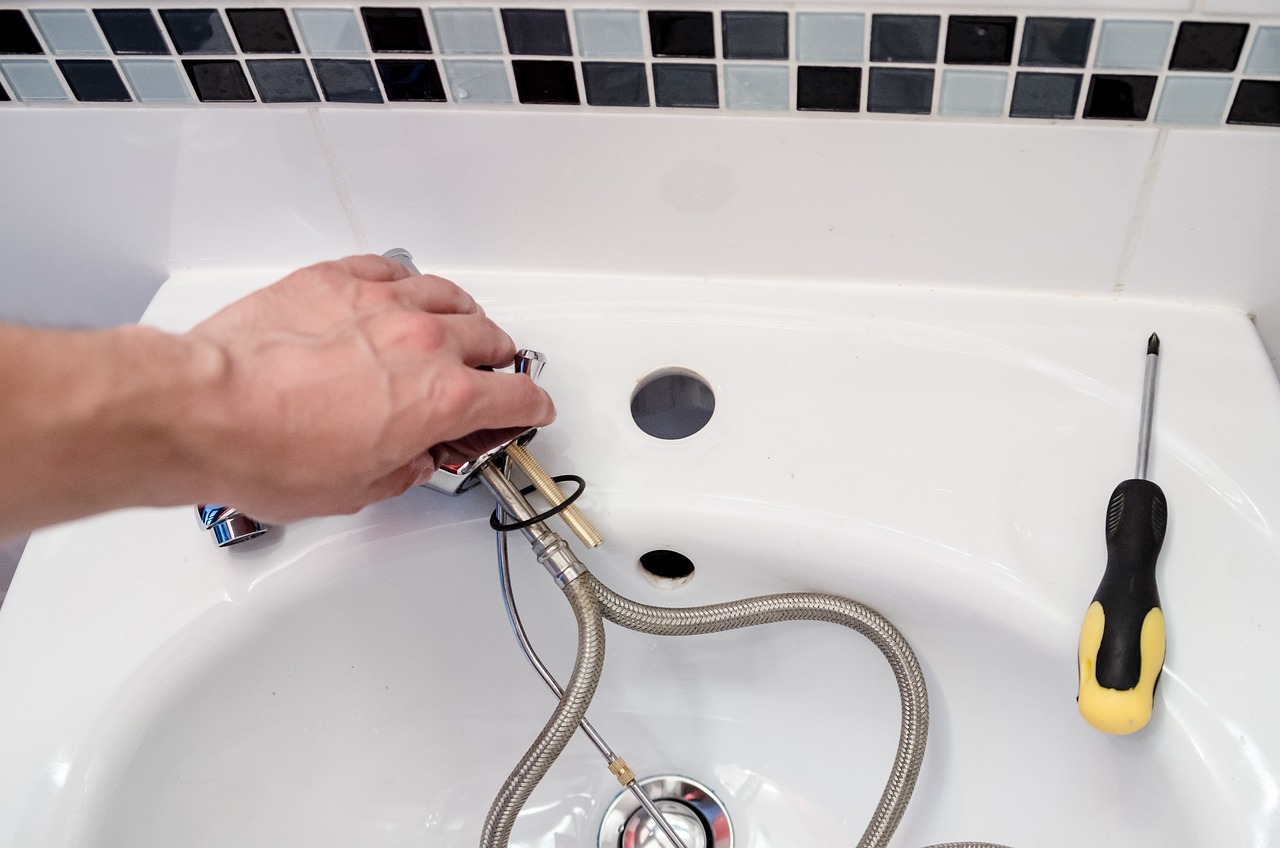PROPERTYSPARK ARTICLE
Common Plumbing Issues and How to Prevent Them
From leaky taps to clogged drains, common plumbing problems are something almost every homeowner will face at some point.
The good news? Most of these issues can be prevented with a little knowledge and regular maintenance. By understanding what causes these problems and taking proactive steps to address them, you can keep your plumbing system running smoothly and avoid unexpected headaches.
In this blog, we’ll explore some of the most frequent plumbing issues and share practical plumbing maintenance tips on how to prevent them. Whether you’re dealing with low water pressure or a running toilet, we’ve got the advice you need to protect your home and wallet.

Leaky Taps and How to Stop Them
Leaky taps are a common plumbing issue that can waste water and increase your bills. A slow drip might seem harmless, but over time, it can add up to hundreds of liters of wasted water.
Here’s what causes leaky taps and how you can fix and prevent them:
- Worn-out washers or O-Rings: These small rubber components wear down over time, causing leaks. Regularly check and replace them as needed.
- Loose parts: Constant use can loosen nuts and bolts in the tap assembly. Tightening these can stop the leak.
- Corrosion or mineral buildup: Hard water can corrode metal parts or cause buildup that prevents a proper seal. Clean your taps periodically to avoid this.
- High water pressure: Excessive pressure can damage tap components. Consider installing a pressure regulator to protect your plumbing.
If a tap continues leaking despite these fixes, it may be time to replace it or call a plumber for assistance. Regular maintenance can keep your taps drip-free and efficient.
Clogged Drains and How to Avoid Them
Clogged drains are a nuisance that can disrupt your daily routine and lead to unpleasant odours or even pipe damage. Fortunately, most blockages are preventable with simple habits and maintenance.
Here’s how to keep your drains flowing freely:
- Use drain covers: Install mesh covers to catch hair, food particles, and debris before they go down the drain.
- Avoid grease and oils: Never pour cooking grease or oils down the sink; they solidify and create blockages. Dispose of them in a container instead.
- Watch what you flush: Only flush toilet paper. Wipes, tissues, and other items labelled “flushable” can clog pipes.
- Clean regularly: Use a mixture of baking soda and vinegar monthly to break down buildup naturally.
- Mind outdoor drains: Clear leaves and debris from outdoor drains to prevent water pooling and blockages.
If a drain becomes stubbornly clogged despite these precautions, avoid chemical cleaners − they can damage pipes. Instead, try a plunger or call a plumber for professional help. Proactive care keeps your plumbing in top shape.
Running Toilets: Causes and Solutions
A running toilet might seem like a minor annoyance, but it can waste hundreds of liters of water every day, driving up your water bills. The most common cause of this issue is a faulty flapper valve, which controls the flow of water from the tank to the bowl.
Over time, the valve can wear out or fail to seal properly. Other causes include a misaligned float that doesn’t stop the tank from filling or a leaky fill valve.
Preventing a running toilet is simpler than you might think. Regularly inspect the internal components of your toilet tank for wear and tear. Replacing a worn flapper valve or adjusting the float is a quick DIY fix that can save water and money.
If the problem persists, it might indicate a more serious issue, such as sediment buildup, requiring professional help. Addressing the problem early prevents wasted resources and costly repairs.
Low Water Pressure and How to Fix It
Low water pressure can make everyday tasks like showering or washing dishes frustrating. It’s often a sign of an underlying issue in your plumbing.
Here’s what might be causing it and how to fix or prevent it:
- Mineral buildup in pipes: Hard water can cause mineral deposits to clog your pipes. Periodically clean aerators and showerheads with vinegar to break down deposits.
- Leaks in your plumbing system: Hidden leaks reduce water pressure. Regularly inspect visible pipes for drips or damp spots, and address leaks promptly.
- Clogged aerators or taps: Dirt and debris can block water flow. Remove and clean aerators or tap screens regularly.
- Issues with pressure regulators: If your home has a pressure regulator, a faulty one can reduce water flow. Have it checked and replaced if necessary.
- Municipal water supply problems: Sometimes, low pressure originates from the city supply. Contact your water provider to confirm.
If these steps don’t resolve the issue, it’s best to call a plumber for a thorough inspection. Restoring proper pressure ensures your plumbing works efficiently and reliably.
Water Heater Issues and Maintenance
Your water heater is essential for daily comfort, but when it malfunctions, it can disrupt everything from your morning shower to washing dishes.
Common hot water system issues include a lack of hot water, strange noises, or water that’s too hot or not hot enough. These problems often stem from sediment build up in the tank, a faulty thermostat, or a worn-out heating element.
The good news? Regular maintenance can keep your water heater running smoothly. Start by flushing the tank annually to remove sediment that reduces efficiency.
Check the anode rod − a vital component that prevents tank corrosion − and replace it if it’s worn. Adjusting the thermostat to a safe and energy-efficient temperature (around 50-60°C) also helps extend the heater’s lifespan.
If you notice persistent problems like leaks or inconsistent heating, it’s time to call a professional. Routine care ensures your hot water system works efficiently and lasts for years to come.
Burst Pipes and Winter Precautions
Burst pipes are a homeowner’s nightmare, often caused by low temperatures, high water pressure or ageing pipes. The damage can be extensive and expensive, but you can take steps to prevent it. Here’s how:
- Insulate your pipes: Wrap exposed pipes, especially in unheated areas like basements or garages, with foam insulation to protect them from low temperatures.
- Keep a drip going: On particularly cold nights, let taps drip slightly to prevent water from freezing and creating pressure buildup.
- Disconnect outdoor hoses: Drain and store hoses during winter to prevent frozen water from backing up into your pipes.
- Seal draughts: Check for gaps around windows and doors near pipes and seal them to keep the cold out.
- Monitor water pressure: High pressure can weaken pipes over time. Install a pressure regulator to maintain safe levels.
If a pipe does burst, turn off your water supply immediately and call a plumber. Preparing your pipes for winter can save you from costly repairs and a lot of stress.
Sewer Line Backups: How to Keep Them Clear
A sewer line backup is one of the most unpleasant plumbing problems a homeowner can face. It can lead to slow-draining sinks, gurgling toilets, or, in worst-case scenarios, wastewater flooding your home.
Common causes include blockages from grease, hair or non-flushable items, as well as tree roots invading sewer lines or collapsed pipes due to age.
Preventing sewer backups starts with mindful habits. Avoid pouring grease, coffee grounds or food scraps down the drain, and only flush toilet paper − no wipes, even if they’re labelled “flushable”.
Installing a drain screen can help catch hair and debris before it clogs the system. Additionally, schedule regular sewer line inspections, especially if your home is older or surrounded by large trees.
If you notice warning signs like frequent clogs or foul odors, act quickly to prevent a full-blown backup. Professional maintenance can save you from costly repairs and messy cleanups.
Keep the Water Flowing Smoothly
Plumbing problems can be a real hassle, but with a little knowledge and proactive care, many issues can be prevented before they become costly repairs.
From leaky taps to clogged drains and burst pipes, the key is regular maintenance and mindful habits. By inspecting your plumbing system, addressing small problems early, and following preventive measures, you can keep your home running smoothly and avoid unnecessary stress.
Remember, when in doubt, it’s always better to call a professional plumber for expert advice and solutions. A little effort today can save you time, money and headaches down the line.
Learn how to Become a Top Agent with the Guaranteed 5 Min/Week System
No social media experience needed
Free webinar seat (limited quantities)
Learn the guaranteed 5 min/week system
Become a social media superstar
Constantly get new leads
Beat the competition
Get a special webinar deal
This Agent Tripled His Commissions Just With Social Media
Learn how this real estate agent tripled his commissions just with social media and how you too can become a social media superstar.
Why You Can’t Just “Boost” Your Real Estate Listing
That big blue button has tempted you before right? You want to Facebook Boost your Real Estate listing. Find out why you shouldn’t!
How Much Should Realtors Spend On Social Media
A question we get often from Realtors is “how much should I spend on social media?” Find out exactly how much to spend and how to spend it without getting ripped off!





